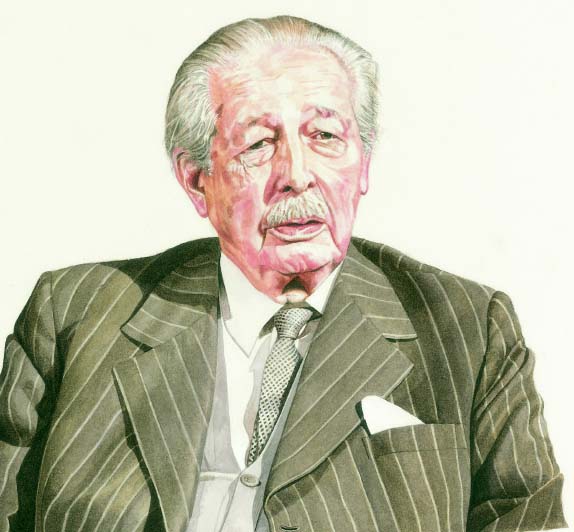|
In 1991 they came under clandestine pressure from a campaign organised by the "Holocaust Educational Trust" and other self-appointed police agencies of the British and foreign Jewish communities. Although this campaign was openly reported on in the community's newspapers, the publishing firm said nothing of it to their author. It is thus not known what was the response of their new young managing director Felicity Rubinstein to these approaches from the Jewish community. The whole scandal would have remained secret had a member of Macmillan's staff not turned over a substantial file of their private internal memoranda and correspondence with Mr Irving to the Board of Deputies of British Jews, an action strictly against company policy. ONE ACADEMIC who was approached to join in this secret pressure campaign indignantly refused to have any part of it. He later made the whole dirty business public in a letter published on April 18, 1996 in The Daily Telegraph. Mr Irving heard only rumours of this campaign at the time, soon after he returned from Moscow with the exclusive missing sections of the diaries of Joseph Goebbels on July 4, 1992 -- the newspapers that weekend were filled with stories about the anger of the Jewish community at his scoop, and organised rioters had besieged his London home in his absence the day before his return. In August 1992, after Macmillan's asked him about progress with his Goebbels biography, he wrote to ask Roland Phillips, his editor at Macmillan's (who later married Ms. Rubinstein), to revert the rights in the work to him. He had already asked Macmillan's to revert rights in Roosevelt's War. By that time, the London publisher had already panicked and, in an unprecedented action not unlike Dr Joseph Goebbels' Nazi book-burning of 1933, secretly ordered thousands of Mr Irving's remaining books destroyed, without informing him of this violation of his rights. In correspondence with him from 1997 to 1999, the
publishing company's managing director Ian Chapman
and their lawyers professed to see nothing wrong with the
enforced clandestine destruction of their stock of his
books. As a result of demands
by lawyers acting for defendants in another action, this
Website was obliged to remove key documents in this scandal
temporarily from your screens; they have been replaced after
Mr Irving's High Court action placed them more securely in
the public domain. Related file: June 2001: Ghosts of David Irving Trial Haunt Publishers: Macmillan UK refuse to print Jewish professor's "libellous" work |
 IN
ABOUT 1980 Macmillan UK Ltd signed their first contract to
publish books by David Irving. Later, they
republished his famous biographies
IN
ABOUT 1980 Macmillan UK Ltd signed their first contract to
publish books by David Irving. Later, they
republished his famous biographies